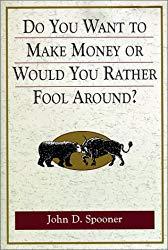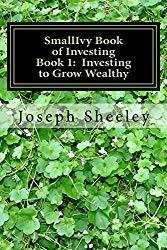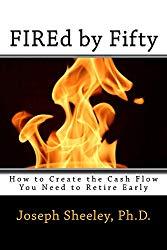Probably when I started this blog, I should have gone over the types of accounts an individual should have to build wealth, secure their future, etcetera. As I’ve said, I am not a financial planner, just an investor, so please take this as information on what I do, and not necessarily a recommendation on what you should do. I don’t know your particular situation, and I am not a financial planner. You should seek one if you really need help with your whole financial picture.
(Note, if you click on a link in this post and buy something from Amazon
1) The first account needed before any others is an emergency fund. This should contain enough money to hold you over for 3-6 months. This is the money you will live on if you lose your job. It is also used when the air conditioner unexpectedly breaks down, you get into an accident and suddenly need to replace a car, or other like expenses. This money should be kept in a money market account where it is readily accessible, but should only be used for emergencies (not a vacation). You should jealously guard the money in the account and feel really uncomfortable if the balance drops below the 3-month minimum, working hard to return it to at least that level if you do have a significant expense. Note that this account keeps you from needing to put money on a credit card if an unexpected expense appears. If you have significant other accounts, you can cut this account back to about 3 months, but don’t drop below that level, since otherwise the market will tank just as you lose your job.

2) Retirement account – This is your 401k, IRA, or a combination of such accounts. You should be putting about 10-15% of your income into these accounts, and never, ever, take a loan against these accounts or take money out of them unless you will be on the street if you don’t This is your future, and every dollar in them will be worth about $120 when you retire, so that $10,000 loan you take out and then change jobs and never put back will cost you $1.2M when you retire. DON”T TOUCH IT. This account should be invested in a diversified set of mutual funds (see the post on 401K investing).
Want to learn how to invest? Better yet, want to learn how you can use investing to become financially independent? Please check out my first book, The SmallIvy Book of Investing: Book1: Investing to Grow Wealthy.

3) The third account is your stock investment account. This is the account you will use to gain financial independence and be able to do whatever you want to as an occupation by the time you’re in your mid fifties. This account can afford to take some losses in the beginning, and therefore should be filled with individual stocks (no positions larger than what you are willing to lose). This account is gradually diversified and shifted into mutual funds once it becomes big enough that capital preservation becomes important.
The most important aspect of growing wealth is to live on less than what you make so that you can always be putting money into each of these accounts. Even if you are a fantastic stock picker, you will never be wealthy if you never have any money to invest. Wealth is built by saving religiously and buying assets such that you begin to supplement your income with returns from your investments, eventually reaching the point where the money you are making from your investments is greater than what you receive from your job. At that point you can both increase your lifestyle somewhat and pump even more money back into buying assets, which is when things really start to grow.
Also, before you can start investing, you need money to invest. Please check out my latest book, FIREd by Fifty: How to Create the Cash Flow You Need to Retire Early

Have a burning investing question you’d like answered? Please send to[email protected] or leave in a comment.
Follow on Twitter to get news about new articles. @SmallIvy_SI
Disclaimer: This blog is not meant to give financial planning or tax advice. It gives general information on investment strategy, picking stocks, and generally managing money to build wealth. It is not a solicitation to buy or sell stocks or any security. Financial planning advice should be sought from a certified financial planner, which the author is not. Tax advice should be sought from a CPA. All investments involve risk and the reader as urged to consider risks carefully and seek the advice of experts if needed before investing.
